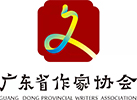
标题

标题
内容
首页 > 自定义类别 > 海上丝绸之路文学发展论坛 > 发言
全球化时代的翻译与写作
更新时间:2018-11-11 作者:穆罕默德·阿努亚尔·莫尔塔吉 (摩洛哥)来源:广东作家网
在第二度的千禧年结束后,发达国家越来越重视曾经遭受过殖民的国家的历史,尤其是西方的一些科研中心和美国的一些大学,这些机构培养了研究中东、非洲和亚洲地区的各国文化与文明的科研人员。
这一行为突出了发达国家对这些国家文化的重视。经济全球化现象席卷了当地市场,并通过精英们从南方国家移居发达国家的移民运动,使第三世界的文化实现国际化。翻译在全球化时代成为了一种南北方国家间交流的工具,但有时也成了一种在形容他人时的控制机制,通过将南方国家贴上低等国家的标签来形容对方,以此来划清主与仆、殖民者与被殖民者之间的上下关系与支配关系,并使这种关系具有合法性。因此,翻译不仅仅是一种传达工具,并不是实现源语言与目标语言之间的匹配就足够了,也不是两种语言之间的过渡转移,而是两种不同文化之间的桥梁和通道。换言之,翻译代表着征服者与被征服者之间的一种力量与控制的关系,我们不能让它成为一种控制他人声音的手段。
作家阿卜杜·法塔赫·卡里图在他的《不要讲我的语言》一书中写道:“自法里斯·希迪亚克以来,我们阿拉伯人创造了特殊的阅读方式,我们读着阿拉伯文,而心里想着将其转化为一种欧洲语言的可能性”;摩洛哥思想家阿卜杜拉·阿拉维也有过类似的经历,他在写《当代阿拉伯意识形态》一书时,曾经更想用法语编写,因为他知道当时的阿拉伯知识分子更喜欢哪种书,那些来自西方的书更能吸引人,这种现象我们当下可以找出很多。伴随着大型奖项开始授予阿拉伯世界的小说,这些小说被翻译成其他语言,我们也注意到那些想要走向世界的阿拉伯小说家为了推销自己的作品,给小说设定陌生的主题、新奇的立场,从而吸引外国读者的眼球,例如女性问题、面纱问题、女性的割礼、极端恐怖主义,还有例如西方关于东方的一些刻板印象的相关主题。在全球化的写作时代,这些都是值得我们深思的问题。
Translation And Writing In The Era Of Globalization
Mohammed Anouar Mortaji (Morocco)
Since 21st century, developed countries have paid increasing attention to the history of past colonies in recent years. Especially some western research centers and American universities abound in professionals of cultures and civilizations in the Middle East, Africa and Asia.
It exactly mirrors concerns towards corresponding cultures. As globalization swept over and elites from the Third World immigrated to developed nations, their cultures gained an international background. Translation, to some degree, serves as the communication tool between two sides or even a label of inferiority attached to the Southern Nations. In that way, former colonizers can justify their dominance and superiority. In my case, translation, a means of communication, is far beyond merely simple match or transformation between source language and the target one. It functions as the bridge between two cultures, or according to my aforementioned words, the symbol of power over the conquered. Writer Abdul Fatah Karitu said in his book Don’t speak my language: “We Arabs have created a special way of reading since Ahmad Faris Shidyaq, namely, Arabic on the paper but potential other European languages in the mind.” Similarly, Moroccan thinker Abderrahim El Allam once preferred to finish Contemporary Arabian ideology in French as he knew where Arabian scholars’ interests were at that time. Countless similar cases are also visible today. In fact, some Arabian novels were translated into other languages due to their honors awarded by great prizes. But in order to gain international fame, some Arabian writers appeal to foreign readers’ preference through new perspectives and weird themes, including gender issues, Hijab, female genital mutilation, extreme terrorism or stereotypes about the Orient.